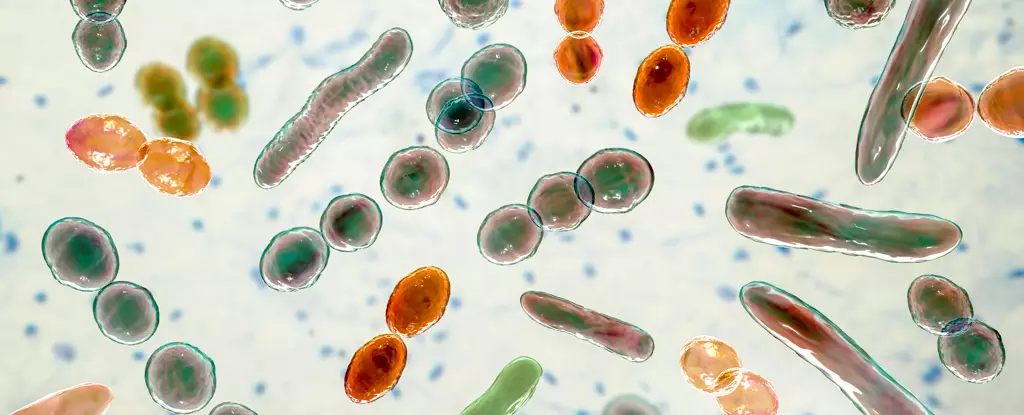Weight loss and diabetes drugs like Wegovy, Ozempic, and Mounjaro have gained significant attention in health news due to their effectiveness in targeting regulatory pathways related to obesity and diabetes. These drugs are considered breakthroughs, but do they address the root cause of metabolic disease? The development of these drugs was inspired by the natural hormones produced by the body, known as incretin hormones, found in the gut. The interplay between these hormones and the trillions of microbes in the gut is crucial in regulating metabolism and weight. As a gastroenterologist studying the impact of food and gut microbiome on health, I aim to provide an inside-out perspective on the role of natural gut hormones and healthy food in metabolism and weight loss.
Specialized bacteria in the lower gut play a vital role in processing the components of food that cannot be digested, such as fiber and polyphenols. These bacteria convert these elements into molecules that stimulate hormones like GLP-1, which is a natural version of Wegovy and Ozempic. GLP-1, along with other hormones like PYY, help regulate blood sugar levels through the pancreas. They also communicate with the brain to signal satiety and instruct the stomach and intestines to slow down the movement of food for proper digestion. This intricate system is known as the “colonic brake.” In the past, before the prevalence of processed foods, a diverse healthy gut microbiome effectively regulated metabolism and appetite through the use of these hormones. However, the removal of fiber and polyphenols in processed foods disrupts this system, thus contributing to the rise in obesity and diabetes.
Wegovy and Ozempic emulate the effects of GLP-1 by reinvigorating the colonic brake downstream of food and microbes. These drugs have shown effectiveness in weight loss and blood sugar control. Mounjaro takes a step further by combining GLP-1 with another hormone analogue called GIP, derived from the upper gut. Studies demonstrate that this combination therapy is even more effective in promoting weight loss compared to GLP-1-only therapies. These drugs work in synergy with other measures like gastric bypass surgery, which bypasses segments of the gastrointestinal tract, stimulating gut cells to produce GLP-1 and PYY. Many patients experience significant improvements in weight, blood glucose levels, and important cardiovascular outcomes. Medical guidelines endorse the use of incretin-based medications like Wegovy, Ozempic, and Mounjaro to manage metabolic conditions like diabetes, obesity, and cardiovascular disease. Additionally, these drugs show potential in treating nonmetabolic conditions like alcohol abuse, drug addiction, and depression due to their impact on the brain and cravings.
Although incretin-based therapies appear promising, there are important considerations and questions surrounding their use. These drugs have gastrointestinal side effects like nausea, vomiting, diarrhea, and constipation, resulting from their impact on slowing down the gastrointestinal tract. More severe but rare side effects include pancreatitis and irreversible gastroparesis. Additionally, these drugs can lead to a loss of healthy lean muscle mass alongside fat, particularly without exercise. The issue of significant weight gain after discontinuing the drugs raises concerns about long-term effects and the possibility of transitioning back to lifestyle measures for weight management. It is crucial to note that despite the appeal of quick fixes, a healthy lifestyle remains the most effective way to manage metabolic disease and overall health. Regular exercise, stress management, sleep, outdoor activities, and a balanced diet are essential for improving metabolism. For individuals without obesity or diabetes, reintroducing whole foods and awakening the gut microbiome through the consumption of minimally processed foods rich in fiber and polyphenols (such as flavonoids and carotenoids) can be the most effective approach to address the obesity and metabolic disease epidemic at its core.
Understanding the role of gut hormones and healthy food in metabolism and weight loss provides valuable insights into the management of metabolic disease. The development of weight loss and diabetes drugs like Wegovy, Ozempic, and Mounjaro builds upon the natural incretin hormones produced by the body. By leveraging the interplay between these hormones and the gut microbiome, these drugs offer significant benefits in terms of weight loss and blood sugar control. However, there are considerations and risks associated with their use, highlighting the importance of a holistic approach that prioritizes a healthy lifestyle. Reintroducing whole foods rich in fiber and polyphenols can awaken the gut’s innate appetite and metabolism control mechanism and contribute to mitigating the obesity and metabolic disease crisis. It is essential to recognize that long-term sustainable solutions rely on lifestyle modifications and the utilization of nature’s own tools to restore metabolic well-being.


Leave a Reply